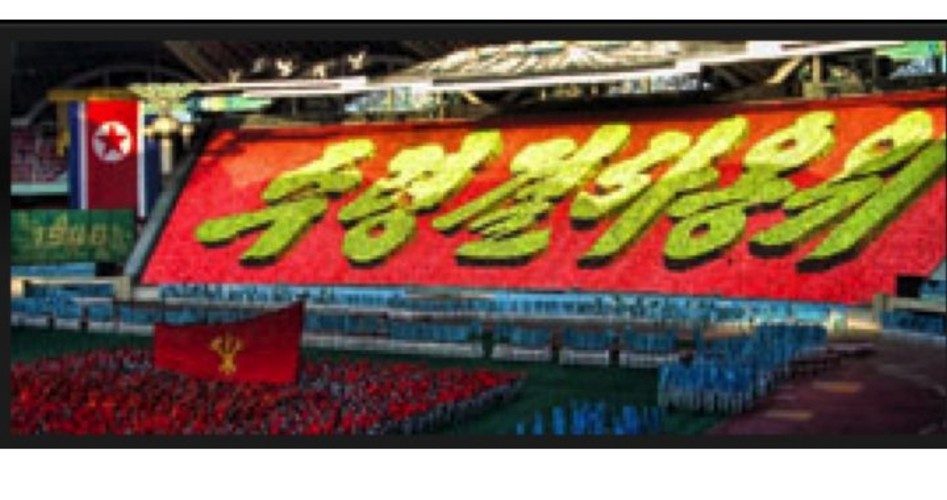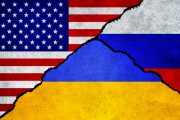
A statement attributed to North Korea’s communist leader Kim Jong Un released by the country’s state news agency, KCNA, on March 14, warned of “merciless” attacks if U.S. and South Korean forces engaged in joint exercises infringe on its sovereignty “even a bit.”
The statement was worded with bravado typical of the militant communist state:
If they infringe on the DPRK’s [Democratic People’s Republic of Korea] sovereignty and dignity even a bit, its army will launch merciless ultra-precision strikes from ground, air, sea and underwater.
A report in Britain’s Express newspaper summarized the nature of the report beautifully: “The propaganda press agency KCNA indicated the blood-thirsty despot was becoming increasingly agitated by the joint military drills south of the border.”
The joint U.S.-South Korean exercise, known as Foal Eagle, is an annual event that has been conducted since 1997. A report produced by GlobalSecurity.org notes: “FOAL EAGLE is a purely defensive exercise which tests the ability of the Republic of Korea (ROK) to defend itself, assisted by U.S. armed forces. It is primarily a rear-area exercise in which troops defend against invading forces, hostile special forces and commando attacks, or sabotage operations on critical rear-area targets.”
The Neutral Nations Supervisory Commission (established by the Korean Armistice Agreement signed July 27, 1953) monitors the exercise to ensure that there are no violations of the Korean Armistice Agreement.
North Korea has often issued strongly worded statements in response to the Foal Eagle exercise. On February 28, 2011, the North Korean military issued a statement that threatened a “merciless counteraction as engulfing Seoul in sea of flames” while North Korea’s state news agency, KCNA, urged “direct fire at sources of the anti-DPRK psychological warfare” to destroy them on the principle of self-defense.
In response to Foal Eagle 2012, the KCNA issued a statement on February 27, 2012 that said: “The war drills are an unpardonable infringement upon the sovereignty and dignity of the DPRK as they evidently target the DPRK, which is in the mourning period…. The army and people of the DPRK are fully ready to fight a war with them.”
During Key Resolve/Foal Eagle 2013, North Korea threatened to abandon the Korean Armistice Agreement, asserting that the exercises threatened North Korea with nuclear weapons and that the United States was unwilling to negotiate a peace treaty to replace the armistice.
In our article posted on March 11, 2013, we observed that the government of North Korea responded to that year’s Key Resolve exercise (which followed that year’s Foal Eagle exercise) by cutting off the telephone “hot line” between the two Koreas at the border city of Panmunjom. Though North Korea often ramped up its rhetoric during the annual exercises, a spokeswoman for South Korea’s Unification Ministry said that the latest crisis was more tense than usual, saying: “Overall, there’s a heightened sense of alert this time.”
A March 11, 2013 BBC report attributed the heightened tensions not only to the “more belligerent rhetoric” coming from Pyongyang, but because of a series of then-recent events, noting that “North Korea’s launch of a long-range rocket in December [2012], its apparently successful nuclear test in February and the fresh UN sanctions imposed on it this month have all added to the sense of tension on the peninsula.”
In our 2013 article, we cited observations about the tense situation on the Korean Peninsula made by Van Hipp, former deputy assistant Secretary of the U.S. Army, and chairman of American Defense International, Inc., in an opinion piece published by Fox News, “What to expect from an erratic North Korea.” After listing half a dozen potential threats presented by the communist regime in Pyongyang, including nuclear weapons tests, Hipp wrote: “The North Korean threat is the greatest nuclear weapons challenge to the United States since the Cold War.”
We wrote that while Hipp may well be correct in this assessment, U.S. response to the threat is often subjugated to official United Nations direction, in the form of UN resolutions.
We continued by reminding our readers that the present state of the Korean peninsula, divided into a tyrannical communist regime in the North and a free nation in the South, came about as a result of a UN-directed “police action” that has never officially ended.
Providing some historic background, we also noted that although the UN-managed war in Korea was supposedly fought to prevent a takeover of the Korean peninsula by communist forces pouring in from China, it was later revealed that Soviet communists within the UN apparatus had been funneling intelligence information to the communist side. We quoted from a revelation made by John F. McManus noted in his book Changing Commands: The Betrayal of America’s Military:
All military directives sent from Washington and the Pentagon to military commanders in Korea were also supplied to several offices at the U.N., including the Military Staff Committee, formerly led by [the Soviet official, Yuri] Vasilev and later by another Soviet General, Ivan Skliar. Everything the U.S. commanders were doing was known to communist leaders even before actions were taken.
We then reminded the readers that the inability (or unwillingness) of the UN-controlled, but largely U.S.-supplied, forces to fully liberate the Korean peninsula led to the stalemate and tense division that exists to this day. To believe that the implementation of UN resolutions will reverse the conditions responsible for the ongoing state of crisis is wishful thinking, at best.
As a clear indication that our government and the governments of our allies in Asia are still relying on UN resolutions to curtail the threatening behavior of the North Koreans, we need only consider several statements we quoted from in recent articles about the reactions of the United States, Japan, and South Korea to North Korea’s firing of a ballistic missile into the Sea of Japan on February 12 and four more missiles on March 6. The day after those latter launches, North Korea admitted that they were part of practice tests to hone its ability to strike U.S. military bases in Japan.
After those latest missile tests by North Korea, President Trump spoke by phone with Japan’s Prime Minister Shinzo Abe and South Korea’s acting president, Hwang Kyo-ahn, on March 7.
“Both Japan and the U.S. confirmed that this North Korean missile launch was a clear violation of U.N. Security Council resolutions and was an obvious challenge to the region and the international community,” Abe told reporters in Tokyo, repeating his assertion that the North Korean threat had “reached a new stage.”
The previous month, U.S. ambassador to the UN Nikki Haley said in a statement following an emergency Security Council meeting on February 13 that was called by the United States, Japan, and South Korea to discuss North Korea’s missile launch: “We call on all members of the Security Council to use every available resource to make it clear to the North Korean regime — and its enablers — that these launches are unacceptable.”
Japan’s ambassador to the Republic of (South) Korea, Koro Bessho, told reporters in February that the key is implementing sanctions to get North Korea to change course. “I think we need to keep pushing because we’re not looking for a military solution,” he said. “We have to have a peaceful solution, and the Security Council … is the body that is most suited for that role.”
We noted in our recent article that Bessho’s statement is naïve. Given the history of the UN’s role in settling international disputes, there is much evidence that the world body’s imposition of sanctions, especially when they are enforced by “peacekeeping” forces or coalitions of UN members, have often entangled the United States in armed conflicts.
Recall the very beginnings of the war that ended in the stalemate that still exists. On June 27, 1950, the UN Security Council adopted Resolution 83, recommending that UN members provide assistance to the Republic of Korea “to repel the armed attack and to restore international peace and security to the area.”
The costly war in Korea from 1950 through 1953, in which 36,516 Americans died, should serve as a reminder of what can happen when the UN gets involved in a conflict. It should also remind us of the heavy costs of U.S. interventionism overseas.
Related articles:
North Korea Admits Missile Launches Were Test of Possible Strike Against U.S. Bases in Japan
North Korea Missile Test Draws Reactions From Trump, Abe, and UN
North Korea Claims to Test H-Bomb
North Korea Postures With Nuclear Warning, Movement of Missiles
North Korea Attacks South Korea
The Aftermath of the Sinking of the South Korean Ship Cheonan
North Korea Prepares to Launch Missile
North Korea Issues Threats During U.S.-S. Korean Joint Exercise
North Korea Sentences U.S. Student to 15 Years of Hard Labor
Lawmakers Blast UN for Handing U.S. Technology to North Korea, Iran


